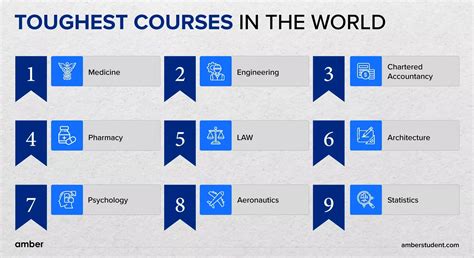Introduction

Venturing into the realm of higher education often entails navigating a daunting maze of academic challenges. For students pursuing science-related disciplines, the path becomes particularly arduous, with certain classes standing as formidable gatekeepers. This comprehensive guide delves into the most challenging science courses that college students may encounter, shedding light on their complexities and providing strategies for success.
Organic Chemistry: The Molecular Labyrinth
Organic chemistry, the study of carbon-containing compounds, stands as a cornerstone of various science disciplines, including biology, chemistry, and medicine. Its complexities stem from the intricate interactions between carbon atoms and their molecular structures. Students must master nomenclature, reaction mechanisms, and stereochemistry, which involves understanding the three-dimensional arrangement of atoms. This course demands a deep understanding of fundamental concepts and the ability to apply them to complex problems.
Calculus: The Mathematical Foundation
Calculus, the mathematical discipline of change, plays a pivotal role in science, engineering, and economics. It introduces concepts such as limits, derivatives, and integrals, which are essential for understanding various scientific phenomena. Calculus requires a strong foundation in algebra and trigonometry, along with the ability to think abstractly and apply mathematical principles to real-world problems. Students must possess a high level of problem-solving skills and the ability to manipulate complex equations.
Physics: The Laws of Nature
Physics, the study of matter and energy, confronts students with the fundamental laws governing the universe. This course delves into concepts such as mechanics, electricity, and magnetism, demanding a deep understanding of physical principles and the ability to apply them to practical problems. Physics requires strong mathematical skills, as well as the ability to analyze data, solve equations, and interpret results.
Genetics: The Blueprint of Life
Genetics, the study of heredity and variation, explores the intricate mechanisms of genetic inheritance. Students must comprehend complex concepts such as Mendelian inheritance, molecular genetics, and population genetics. This course demands an understanding of biology, along with the ability to analyze and interpret genetic data. Genetics requires a strong foundation in cell biology, molecular biology, and principles of evolution.
Quantum Mechanics: The Unseen World
Quantum mechanics, the study of the behavior of matter at the atomic and subatomic levels, introduces students to the strange and counterintuitive nature of the quantum world. This course delves into concepts such as wave-particle duality, superposition, and entanglement, challenging students to think outside the confines of classical physics. Quantum mechanics demands a strong foundation in mathematics and physics, along with the ability to grapple with abstract and complex ideas.
Strategies for Success
Mastering these challenging science classes requires a multifaceted approach that encompasses:
- Laying a Solid Foundation: Ensure a strong foundation in prerequisite courses, including mathematics, biology, and chemistry.
- Active Learning: Engage in active learning techniques such as attending lectures, participating in study groups, and completing homework assignments diligently.
- Seeking Help: Do not hesitate to seek help from professors, teaching assistants, or tutors when needed.
- Time Management: Allocate sufficient time for studying and practicing, creating a structured schedule that accommodates both coursework and extracurricular activities.
- Effective Note-Taking: Develop effective note-taking skills to capture key concepts during lectures and while reading textbooks.
- Practice and Review: Regularly practice solving problems and reviewing concepts to reinforce understanding and identify areas for improvement.
Conclusion
The pursuit of science at the college level presents formidable challenges, with certain science classes standing as particularly difficult obstacles. Organic chemistry, calculus, physics, genetics, and quantum mechanics demand a high level of understanding, critical thinking, and problem-solving skills. By implementing effective strategies for success, students can navigate these academic hurdles and emerge as proficient scientists, prepared to make significant contributions to their chosen fields.
